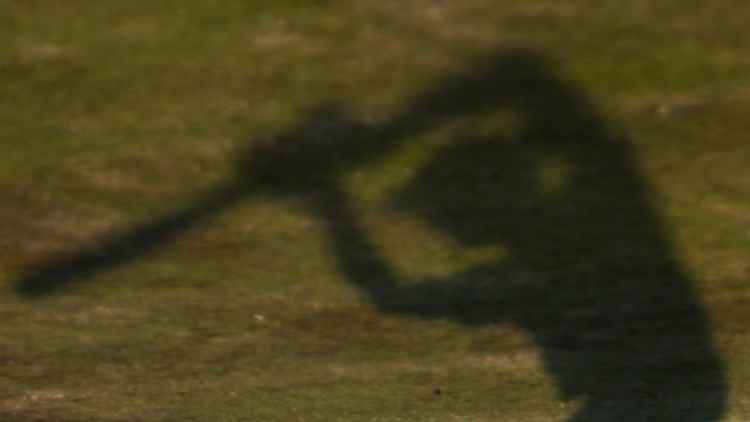
South Africa Olympics body to ICC: Our intervention is not government interference
by Firdose Moonda, South Africa correspondent, ESPNcricinfoThe South African Sports Confederation and Olympic Committee (SASCOC), which instructed Cricket South Africa's (CSA) Board and Executive to step aside on Thursday evening, has written to the ICC emphasising that its intervention cannot be considered government interference and is based in South African law.
SASCOC's communication with the game's global governing body comes even as CSA seeks legal advice on the validity of SASCOC's involvement in its affairs.
Specifically, SASCOC sought to distance itself from the country's government and offered to meet with the ICC to provide assurance of its independence.
"SASCOC rejects any allegation or insinuation that the SASCOC intervention constitutes Government interference," SASCOC's letter to the ICC reads. "At no stage does or did SASCOC act under the direction or control of the Minister of Sport in the country, or the Government of the Republic of South Africa. The Board exercises its judgment independently of Government, or any other outside influence."
However, in SASCOC's resolutions passed on Tuesday, it lists resolution 2.8 as "the directive by the Minister of Sport and Recreation for SASCOC to intervene into the affairs of CSA."
SASCOC is a legislatively-created body recognised by the National Sports and Recreation Act of 1998. It is the only sports confederation in South Africa, and is the umbrella body under which all sporting bodies in the country operate. In terms of SASCOC's constitution it is allowed to "enquire into the activities of any of its Members where malpractices and other forms of misconduct are alleged," its letter to the ICC reads. "The SASCOC Constitution also makes provision for SASCOC to enquire into the operational, administrative and financial activities of any of its Members where there are allegations of maladministration. CSA as a Member Federation subscribes to the SASCOC Constitution, and is bound by it."
While CSA has committed to engaging with SASCOC, it issued a media statement in the early hours of Friday evening confirming it "does not agree" with SASCOC stepping in. Former ICC Head of Legal David Becker told ESPNCricinfo that CSA is unlikely to be able to stop SASCOC from getting involved, given how broad SASCOC's powers are.
SASCOC maintains the only reason it has taken this much interest in CSA is because it believes the game of cricket is being damaged by CSA's actions. "Given the litany of complaints that has plagued CSA since at least December 2019, there can be no doubt that CSA has been brought into disrepute, and that its standing amongst players and ex-players, the media, the public and most importantly, its stakeholders such as sponsors, and the government, have dramatically diminished resulting in a loss of trust and confidence in the organisation," SASCOC's letter said.
The next step in SASCOC's process is appointing a task team to investigate CSA's administrative and financial affairs. SASCOC hoped to work with the Cricket South Africa Members' Council - the body made up of the 14 provincial presidents who have the highest decision-making powers in CSA - to nominate the members of the task team but the Members' Council did not meet with SASCOC on Friday. Instead, the CSA Board and Members' Council is meeting this weekend while SASCOC appears likely to be deciding on the task team on its own.
"The Task Team will be composed of eminent South Africans who have standing and integrity, and once identified, will be conducting an initial investigation within a period of one (1) month," SASCOC said. "The Task Team will remain accountable to the SASCOC Board and the Members' Council of Cricket South Africa once its findings and recommendations are made."
The Task Team is not an "attempt to place Cricket South Africa under administration," but it does require "the CSA Board and those Senior CSA Executives who serve on it on an ex officio basis to step aside in order to facilitate the work of the Task Team." SASCOC called such a request entirely reasonable, and indeed necessary," and stressed that "The Task Team will consult with the Members' Council where necessary, and seek its approval from time to time."
Chief among the Task Team's missions will be to access CSA's recently completed forensic report, which it used to dismiss former CEO Thabang Moroe. CSA has not made the report available to anyone except its members' council who have been required to sign non-disclosure agreements in order to view the report but may be allowed to see it in full this weekend. Still, both SASCOC and the country's sports ministry want access to the report in order to understand the depths of CSA's governance issues.
"CSA's steadfast refusal to make the forensic report available is puzzling, as it appears that they are unable to self-correct if the report is not made available, not only to its own Members, but also to the media and the public at large since it is a public document," SASCOC said.